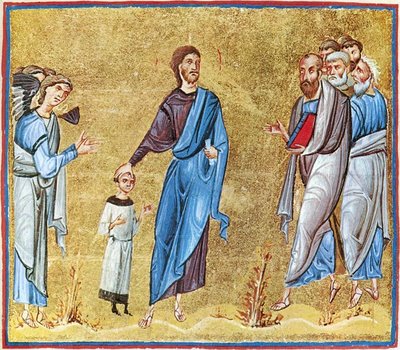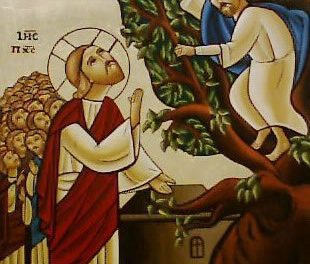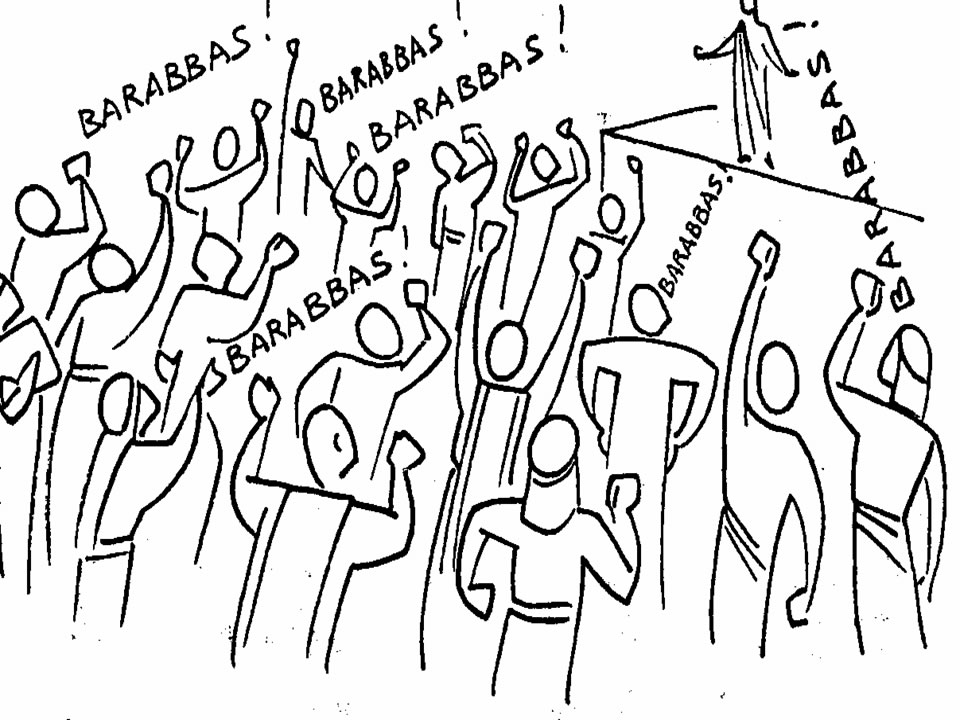Readings:
Ignorance is bliss, they say, and it’s tempting sometimes to think that only a willful refusal to face reality can give us happiness. Take pleasure where you can get it, make a way for yourself in the world, and tune the rest out: it’s one way to get through life. Some might call it wisdom. But it is not the wisdom of scripture, not the wisdom of Jesus’ life.
Our gospel shows Jesus’ disciples not understanding him, and, like so many students before and after them, not wanting to ask questions that would let him know they do not understand. The first time he predicted his crucifixion, a chapter earlier, Peter had tried to talk him out of it and got a sharp rebuke for his trouble. Jesus accused him of thinking as humans do, not as God does. So this time, they just keep quiet and carry on with their human thinking, their worldly wisdom. Never mind this mood that has him thinking about death. Let’s talk about what really matters. Who walks in front, who is Jesus’ right-hand man? Which one of us gets to be the leader?
The disciples here are following a path described by the first two readings, a path of false wisdom.
“The wicked” in this Sunday’s first reading from Wisdom are described before this selection as those who see that life is a path toward death and oblivion, and who, therefore, gather up any enjoyment they can for the moment before life is gone.
Let us have our fill of costly wine and perfumes, and let no springtime blossom pass us by; let us crown ourselves with rosebuds before they wither. (Wisdom 2:7-8)
As their taste for escapist indulgence grows, they even abuse the poor to provide for their own comfort. The just person “annoys” them, and so they turn on him. From despair they turn to indulgence which leads to injustice and finally to violence against the one who speaks truth to them.
With revilement and torture let us put the just one to the test
that we may have proof of his gentleness
and try his patience.
Sure he’s gentle. Let’s see how that works for him! We know the way of the world: you have to get what you can for yourself. Any other path is foolishness.
Lacking hope, the heart grasps at straws, growing calloused to others’ suffering in the race to find comfort for itself and turning against those who show that another way is possible.
The second reading, from James, describes a different false wisdom, the one that tries to make one’s existence meaningful by building a life that is important. What kind of life will be important? We’re not sure about that, but at least if I can be ahead of others, that will be something. We don’t know where we’re going, but I’m going to be in front! The same despair that led to self-indulgence and cruelty can lead instead to ambition and envy, a restless need to put others down in order to pull ourselves up. Instead of indulging sensual desires, as in the first case, these indulge their pride.
These paths can claim a kind of wisdom because they succeed in distracting us from our anxiety that our lives are worthless, fleeting, insignificant. The disciples, perhaps shaken by Jesus’ first prediction of the crucifixion, have fallen into this familiar pattern, distracting themselves from the reality he has set in front of them by quibbling about their status.
So the Good Teacher takes a new tack with his students. They cannot face the prospect of the just man being rejected and killed because they, like most of us, have a habit of avoiding any sight that would remind them of their frail mortality. They need a new rule of life, a new way to see. Jesus cleverly turns their ambition on its head with his new rule. Instead of striving to make meaning by outdoing each other, he tells them to compete at becoming not just his servant but the servant of all, including every lowly, vulgar, or vicious person. It’s a position for the lowest slave, probably a woman or child who would do the grubby work of, for example, washing feet.
Too often we’ve treated this saying of Jesus as a call to pretend to be less worthy than we are, as though Jesus would tell us to live a lie. In fact, it’s a call to live in truth. Instead of distracting ourselves from our fear that we don’t matter, we are to throw ourselves into love of others, including the unworthy. From that perspective, we might be able to see the joyful truth that fascination with ourselves blocks. Our salvation, our significance isn’t something we have to manufacture by overcoming others. It is already given. Jesus is not demanding humiliation. He is calling his disciples to live so that they can see what he sees: the utter trustworthiness of the one who holds our lives. All that is needed is given, and so we can give all rather than scrambling to protect ourselves.
Jesus’ wisdom is not the brittle self-defense of the fearful, but a full, wondrous, astounding confidence that Israel’s God is faithful. In that wise confidence, he remains
pure,
then peaceable, gentle, compliant,
full of mercy and good fruits,
without inconstancy or insincerity.
The gentleness and meekness today’s readings call for are about living entirely in the truth that God is love and that we live, whether we know it or not, within that love. In that wisdom, we can lay down our weapons of all sorts and welcome as our savior the one who stands before the world as a child, unarmed yet entirely secure in the goodness of the Father. Meekness and gentleness of a life that sows in peace are not timidity. They are the confidence of One who knows himself to be in a story of the boundless, undefeated love.





